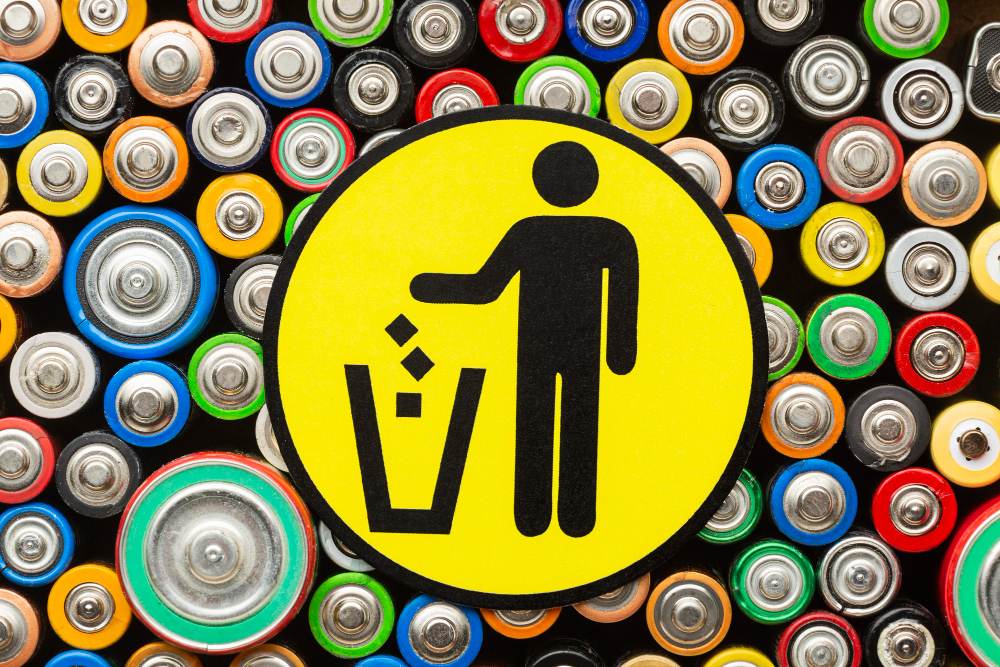India is accelerating its shift toward electrification and renewable energy, bringing battery recycling into sharp focus as a critical component of its sustainability journey. The rapid adoption of electric vehicles (EVs) and energy storage systems has heightened the urgency for innovative and efficient solutions to manage the growing volume of spent batteries.
Lithium-ion batteries, in particular, pose significant challenges due to their hazardous components and environmental impact. However, emerging technologies and strategic initiatives are paving the way for a circular economy, positioning India as a potential leader in sustainable practices.
India’s battery recycling industry is at a crucial juncture. As the country seeks to reduce its reliance on imported raw materials for battery manufacturing, there is a pressing need for robust recycling mechanisms.
The government has recognized this imperative and introduced measures like the Battery Waste Management Rules 2022, which focus on Extended Producer Responsibility (EPR) and environmentally sound recycling practices. These rules aim to create a unified framework for managing battery waste and encourage responsible disposal. Despite these efforts, the current recycling infrastructure remains underdeveloped.
A significant portion of battery waste is still handled by the informal sector, which often lacks the technology and regulatory oversight necessary for safe and efficient recycling. This gap presents both a challenge and an opportunity for innovation and investment in advanced recycling technologies.
The landscape of battery recycling in India is being reshaped by several groundbreaking innovations. Hydrometallurgy, a water-based process for extracting valuable metals from spent batteries, has gained prominence for its lower greenhouse gas emissions compared to traditional methods.
Another promising avenue is bioremediation, which uses microorganisms to recover materials from batteries. This eco-friendly method has the potential to minimize environmental impact and convert hazardous waste into valuable resources. Additionally, AI-driven automated sorting and disassembly systems are transforming the recycling process.
Direct recycling techniques, which focus on recovering active materials without full disassembly, are also gaining traction. These methods preserve the integrity of valuable components, offering a more energy-efficient alternative to conventional recycling. Solid-state batteries, a new frontier in energy storage, are expected to simplify recycling processes due to their inherent stability. These innovations not only enhance safety but also align with India’s vision for a cleaner and more sustainable energy landscape.
The principles of a circular economy are central to advancing battery recycling in India. Initiatives such as lithium battery recycling plants set up across India by multiple Recycling companies exemplify the potential of zero-waste hydrometallurgical processes. These projects aim to recover valuable materials efficiently while minimizing environmental harm. Designing batteries with recyclability in mind from the outset is another crucial step. Such practices can streamline recycling processes, significantly reduce waste, and support India’s green ambitions.
Government policies and economic incentives are also playing a pivotal role in shaping the future of battery recycling. The National Mission on Transformative Mobility and Battery Storage coordinates research and development in EV batteries and promotes domestic manufacturing through initiatives like FAME II and the Production-Linked Incentive (PLI) scheme.
These measures address environmental concerns while creating economic opportunities, such as job creation and investment in green technologies. The private sector is complementing these efforts. Such initiatives demonstrate the potential for collaboration between businesses and policymakers to develop a thriving battery recycling industry.
India’s progress in battery recycling holds immense promise. By embracing innovative technologies, implementing comprehensive policies, and fostering collaboration among government entities, manufacturers, researchers, and recyclers, the country can transform its approach to battery waste management. This transition is about more than addressing environmental challenges—it is an opportunity to unlock new economic possibilities and drive technological advancements.
As India continues its journey toward electrification and renewable energy, the vision of a sustainable circular battery economy is within reach. By redefining waste management as resource recovery, the nation can lead the way in sustainable energy practices while paving the path to a greener future.




